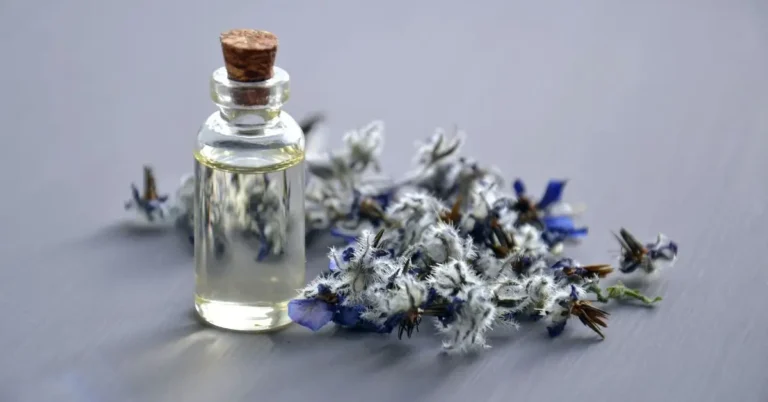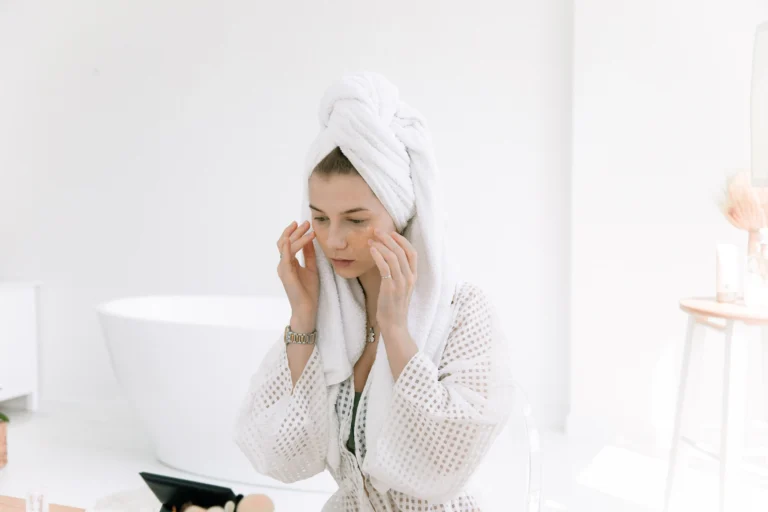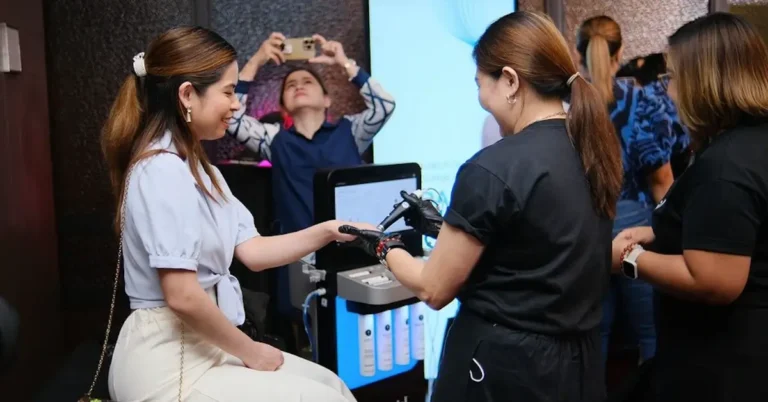Is There a Connection Between Facial Hair and Acne? Sporting facial hair is a common practice, but it can lead to undesired skin issues, such as acne. Acne is a widespread skin problem that impacts countless individuals globally, causing both physical and emotional discomfort. While there’s no definitive proof tying facial hair directly to acne, various studies indicate it might play a role in the development of acne.
In this article, we will explore the connection between facial hair and acne, including the role of hair follicles in acne formation and factors that may increase the risk of acne. Additionally, we will provide tips for preventing and treating acne, including the importance of a proper skincare routine and available treatment options.
Table of Contents
Does Facial Hair Cause Acne?
Yes, in some cases, facial hair can cause acne.
Acne caused by facial hair, also known as “beard acne,” is caused by bacteria, oil, and dead skin cells that become trapped in the hairs and clog pores. Poor hygiene, such as not washing or exfoliating the skin beneath the beard, can also contribute to beard acne.
Furthermore, extremely rough facial hair can irritate the skin and cause breakouts. To avoid beard acne, maintain good hygiene and wash the beard on a regular basis with a gentle cleanser.
My Own Experience

Since I am a woman, I can not speak of my experience with a beard at this point hihi, but that explains itself. 😉
Anyway, my facial hair does not directly cause acne, I’d also say for women they are probably just too fine – for men it may be different.
But I am a big advocate of shaving my face regularly. Don’t worry, you won’t get any stubble or tighter hairs on your face – I’ve been doing it for over 3 years and have never noticed any effects like that. And I don’t think that can happen to women anytime soon either.
What is so good about facial shaving is that it removes dead skin cells, dandruff, and facial hair, which is comparable to a gentle exfoliator. This makes my skin look a lot finer, smoother, and more even – especially makeup looks much better. My skin has also improved significantly because old skin cells are gently removed and the formation of new skin cells is stimulated, so the skin is virtually forced to renew itself regularly – which is also quickly noticeable in your overall skin appearance.
It is best to shave your face with a fine facial razor or eyebrow razor, with which you can work finer and which are not as harsh as normal razors. In addition, I would always recommend you use a (shaving-)oil so that you do not irritate your skin unnecessarily.
With a beard or more robust facial hair, I can imagine that regular shaving can also lead to skin irritation or irritation, which then gives bacteria an easy game. Here I would therefore pay very strong attention to the right shaving oil or shaving foam, which is extra for sensitive skin.
The Connection Between Facial Hair and Acne
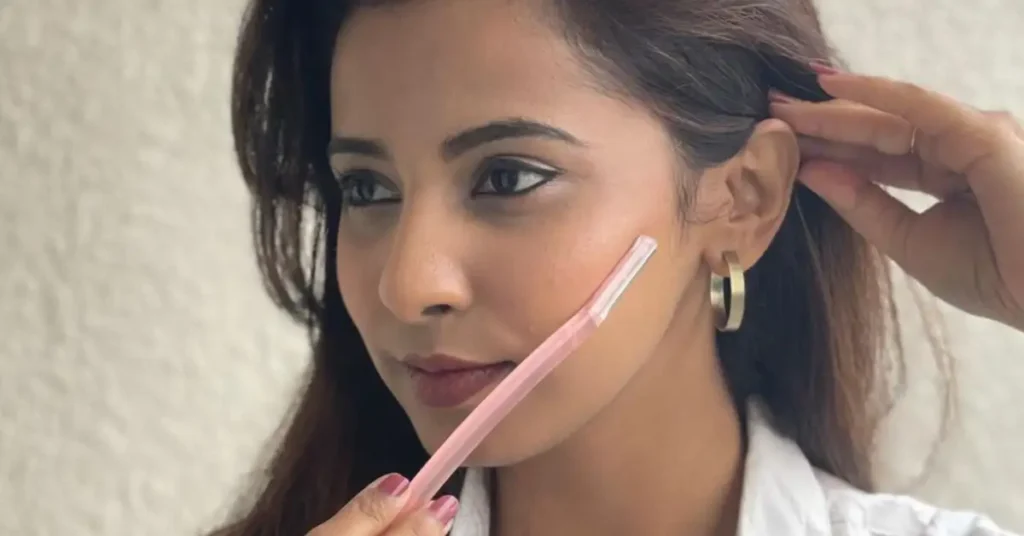
There is a link between facial hair and acne because it can trap oil, dead skin cells, and bacteria next to the skin, clogging pores and causing acne.
Beard acne can also be caused by poor hygiene or bacterial infections in the pores. To avoid beard acne, keep your hands away from your face and practice good hygiene by washing, exfoliating, and hydrating your skin. It’s also worth noting that beard acne isn’t usually caused by hormonal changes.
Hormonal Influences on Acne and Facial Hair
In my quest to understand the dynamics of acne and facial hair, I couldn’t ignore the powerful role hormones play in this equation. Here, I’ll break down the connection and provide insights into managing these hormonal influences.
1. Androgens and Acne: Androgens are male hormones found in both men and women. An excess of androgens can stimulate the sebaceous glands to produce more oil, leading to clogged pores and acne breakouts.
2. Increased Hair Growth: Androgens are responsible for facial hair growth, making their presence essential. However, an imbalance can result in excessive hair growth, a condition known as hirsutism.
3. Hormonal Fluctuations: Hormonal changes during puberty, menstruation, pregnancy, and menopause can trigger acne flare-ups and impact facial hair growth. It’s not uncommon to experience these changes.
4. Polycystic Ovary Syndrome (PCOS): PCOS is a common hormonal disorder that often leads to both acne and excessive facial hair growth due to increased androgen levels.
5. Managing Hormonal Acne: Dermatologists recommend birth control pills, hormone therapy, or anti-androgen medications to regulate hormonal fluctuations and manage acne.
6. Controlling Hirsutism: Laser hair removal and prescription creams are options to control unwanted facial hair growth caused by hormonal imbalances.
Pro Tip: A balanced diet, regular exercise, and stress management can help regulate hormone levels.
Prevention and Treatment of Acne
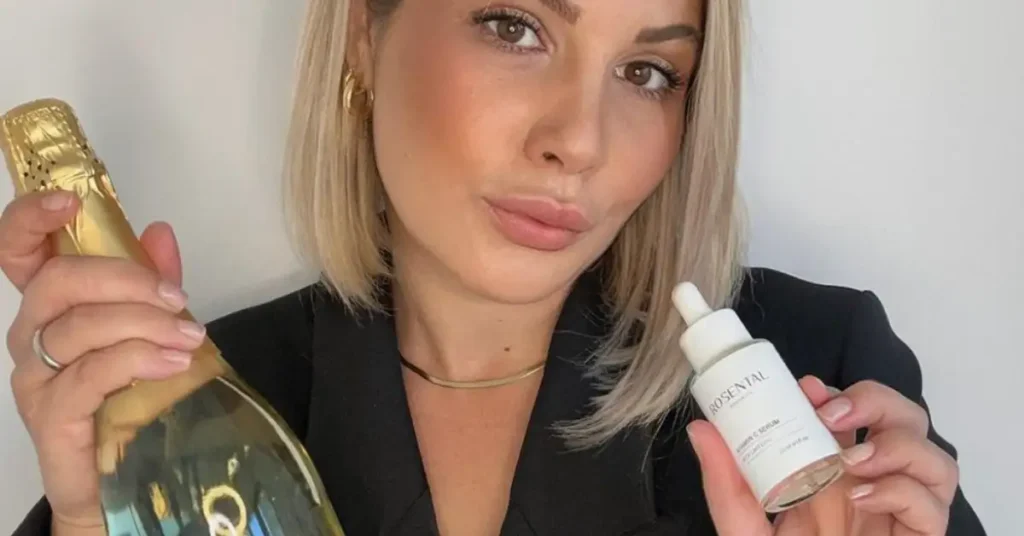
Acne prevention and treatment can help to improve the appearance and health of the skin.
To reduce the risk of acne, I’d recommend you follow a proper skincare routine, which includes regularly cleansing the skin, avoiding harsh or abrasive products, and not picking or squeezing pimples. It’s also critical to use the right products for your skin type, as the wrong ones can aggravate irritation and dryness.
There are several options for treating acne, including over-the-counter (OTC) medications, prescription medications, and professional treatments. OTC acne treatments, such as salicylic acid and benzoyl peroxide, can be effective. For more severe cases of acne, prescription medications such as antibiotics and retinoids may be required. Some people may benefit from professional treatments such as light therapy, chemical peels, and extractions.
But it’s important that you remember that everyone is different, and what works for one person may not work for another. To determine the best course of treatment for your specific needs, consult with a dermatologist or healthcare provider. A combination of treatments may be required in some cases to achieve the best results.
Common Causes of Acne
As I dive deeper into the world of skincare and acne, it’s clear that several factors contribute to those pesky breakouts. Here, I’ll shed light on some common causes of acne:
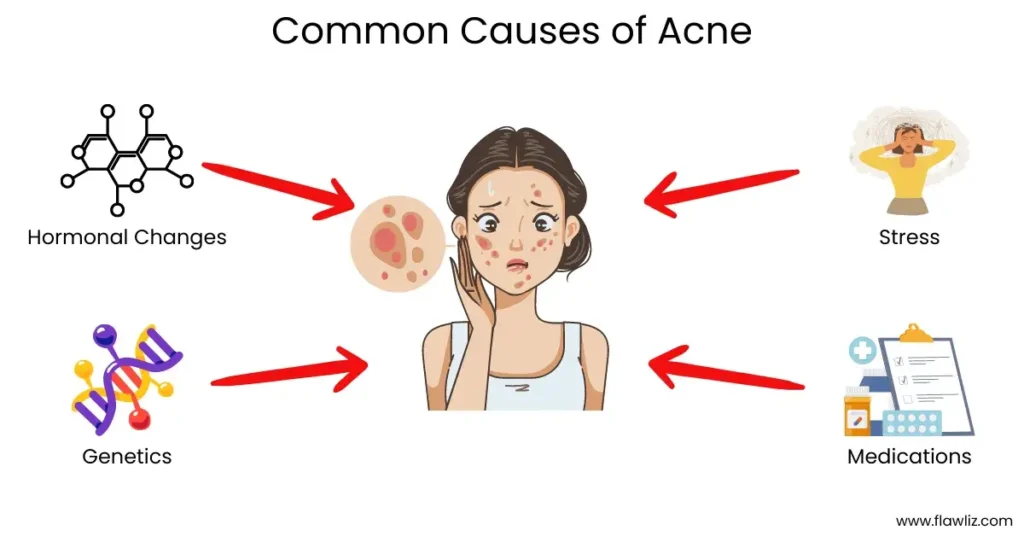
1. Hormonal Changes: Hormones, particularly androgens, play a pivotal role. Fluctuations in these hormones can lead to increased oil production, making the skin more prone to acne.
2. Stress: When stress levels soar, so do cortisol levels, which can stimulate oil production and inflammation in the skin, paving the way for acne.
3. Genetics: Your family tree may hold the secret to your acne-prone skin. If your parents battled acne, there’s a higher likelihood you’ll face similar challenges.
4. Medications: Some medications, including certain birth control pills, corticosteroids, and anticonvulsants, can disrupt hormone balance and trigger breakouts.
Remember: Understanding these common acne causes is the first step towards effective prevention and management.
FAQ:
Can hair in face cause acne?
Yes, facial hair can cause acne. Whiteheads and other types of acne can be exacerbated by greasy hair, product buildup, and pollution from styling products. Furthermore, oily hair can seep onto the face and cause pimples. For some people, facial hair can cause acne breakouts on the skin beneath the whiskers.
Does removing facial hair help acne?
Laser hair removal, electrolysis, and other traditional hair removal methods can help reduce acne by removing hair and avoiding additional irritation caused by shaving. However, caution should be exercised when using these methods on acne-prone skin to avoid further irritation.
Does removing facial hair make acne worse?
Removing facial hair may aggravate acne in some people because it traps oil, dead skin cells, and bacteria next to the skin. To avoid irritation and inflammation, it is critical to use safe and long-lasting hair removal methods on acne-prone skin, such as dermaplaning.
Why does removing facial hair cause acne?
Acne can be caused by the trapping of oil, dead skin cells, and bacteria next to the skin when facial hair is removed. This is especially true for methods that can cause breakouts, such as threading, plucking, and waxing. Exfoliating beforehand to remove dead skin cells and using a moisturizer afterward to prevent dryness are important steps in reducing the risk of acne when removing facial hair.
Does not shaving cause acne?
Although shaving does not cause acne, it can cause other skin problems such as razor burn and folliculitis. In addition, not shaving can cause bacteria to become trapped in the pores, resulting in breakouts. To avoid pimples after shaving, use the right products and stick to a healthy shaving routine.
What makes acne worse?
Acne can be exacerbated by not getting enough sleep, eating certain foods, using oily makeup and skin care products, only treating existing blemishes with acne medication, not cleaning makeup brushes, using hair products too close to the hairline, discontinuing acne treatments too soon, and consuming carbohydrate-rich foods such as bread and chips.
Why am I getting acne on my cheeks?
Acne on the cheeks can be caused by a number of factors, including exposure to dirty phones or pillowcases, frequent touching of the face, or the use of certain cosmetic products. Changes in hormones can also contribute to cheek acne. To get rid of cheek acne, cleanse the skin on a regular basis and avoid clogging pores with dirt, oil, and debris.
Does sleeping with dirty hair cause acne?
Acne can be caused by sleeping with dirty hair. Hair can act as a magnet for dirt and bacteria, allowing it to be transferred to the face and bedding. This impurity buildup can cause breakouts, inflammation, and irritation. To avoid the transfer of bacteria, oils, and other impurities, it is recommended that sheets be washed at least once a week.
Why you should not remove facial hair?
Facial hair removal can cause skin irritation, redness, cuts, and ingrown hair. Shaving does not thicken or change the color of the hair, but it can make terminal hairs feel more difficult to touch until they grow out completely. Other methods, such as waxing or shaving, can result in stubble and should be avoided. Shaving is preferable to exfoliating with a washcloth, face brush, or exfoliator.
How does stress acne look like?
Stress acne is distinguished by an increase in oil production, which results in greasier skin and inflamed pimples that can include a mix of blackheads, whiteheads, red bumps, and pus pimples. It is most commonly found in the oiliest areas of the face, such as the forehead, nose, and chin. Stress acne can resemble acne caused by a poor diet, hormonal fluctuations, or skincare reactions.
Why do I wake up with a new pimple everyday?
A variety of factors can contribute to waking up with a new pimple every day, including hormonal changes or imbalance, an unhealthy diet, stress, excessive sebum production, a warm room that causes pores to contract and expand, dirty pillowcases, and certain lifestyle choices, such as using too many skin-care products or not washing off makeup.
If you liked this blog article about the question: Does Facial Hair Cause Acne, don’t forget to leave us a comment down below to tell us about your experience.



